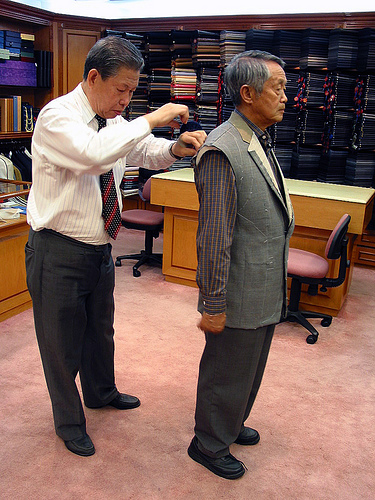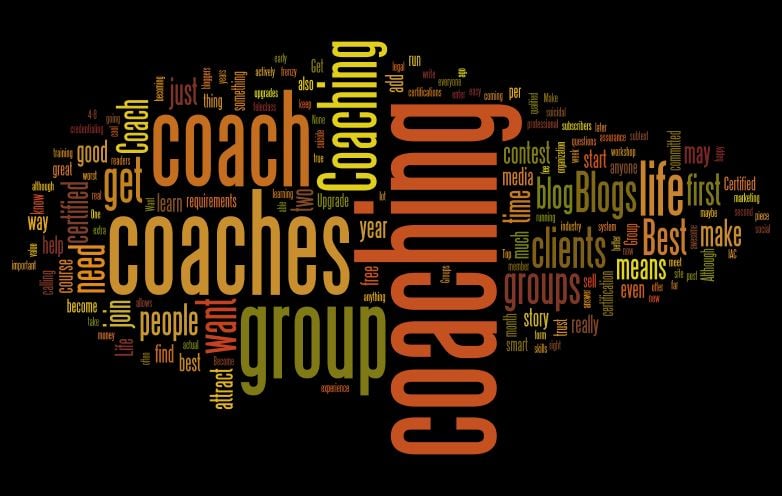
Written by Julia Stewart
I've worked with thousands of coaches in the decade, or so, that I've been training coaches and most of them think they already know how to coach before they get training. That's true only in about 1% of cases.
That 1% applies to psychotherapists, counselors, social workers and other "helping professionals", too. People from these backgrounds can make terrific coaches, but usually they need to unlearn a few things and unlearning often takes longer than learning from scratch.
A story: One day, a member of our Certified Coach Training Program, a licensed psychotherapist, used a therapy technique to extract some info from a resistant client during a practice coaching session in class. He got the tidbit he was after, but the client was insulted and shut down the whole session. His classmates were likewise offended. I had a WTF moment, listening to this travesty, but the coach seemed to think he'd done something clever!
Lesson #1: You NEVER have permission to practice therapy on a coaching client. They are high-functioning and you'd better fully respect that. Use a therapy technique and you will destroy the trusted relationship you need to coach them well - and you'll be violating professional ethics, and possibly the law, as well.
Another story: I worked for years with a psychotherapist whose communication style was serious, cerebral, and analytical. It was perfectly suited to the type of therapy she did, but it hurt her coaching sessions and she had a real challenge learning an effective coaching style to qualify for IAC certification. When she finally achieved it, I literally had tears in my eyes!
Lesson #2: Coaching is light. A big part of what we do is validate the client. It sounds easier than it is for a lot of coaches, but the goal is for the client to be resourceful, so serious, cerebral, and analytical won't cut it.
A third story: I worked for a while with a counselor who had trouble transitioning to coaching. Whenever she got stuck, she asked the client how they felt: "How do you feel?...How do you feel, now?...How do you feel, now?" Argh! I'm pretty sure this wouldn't be great counseling, but I can tell you with authority that constantly focusing on the client's feelings is lousy coaching!
Lesson #3: Coaches don't heal people's feelings. We don't ignore them either, but they are an adjunct to the conversation, not the main topic. It's far better to ask a more specific question, such as, "You don't sound excited when you talk about that goal. What's up with that?"
Final story: I had a former child psychologist show up to a live certification event, but each time she coached, her clients (fellow participants, who were coaches and open to the process) got irritated and shut down. Hmmm, what's up with THAT? Answer: she communicated with her coaching clients in a voice that may have been appropriate for frightened children: soft, gentle and high pitched. In other words, she was talking baby talk to her clients. Ugh. No wonder they were irritated!
Lesson #4: You probably wouldn't use baby talk with your clients, but a communication style that worked for you, as a therapist, may still undermine your coaching. In fact, it may be a train wreck. And you might assume your clients are the problem, rather than your communication style, if you don't get feedback from a good coach trainer, because resistant coaching clients act a lot like therapy clients who have issues: mistrusting, closed mouthed, uncooperative, etc.
Don't hobble your transition into coaching. Get training on coaching communication and make sure you get lots of in-class practice and feedback from experts. Otherwise, you'll repeat the problems above, or worse.
Better yet, if you want to coach and you're just getting started, you may want to skip the psychology degree and just get coach training, instead. You'll save a ton of money and time.












 Everybody knows that CEOs and Executives are the folks who all have high-priced executive life coaches. But a
Everybody knows that CEOs and Executives are the folks who all have high-priced executive life coaches. But a 






